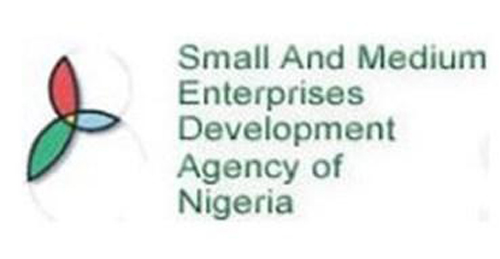The Small and Medium Enterprise Development Agency of Nigeria (SMEDAN) says it is utilising the Investment Climate Reform (ICR) facility in designing template for monitoring and evaluation of National MSMEs Policy. Dr Dikko Radda, Director-General, SMEDAN disclosed this on Wednesday in Abuja at a Stakeholders’ Meeting on Coordination and Implementation Mechanism for the National MSMEs Policy with technical support of ICR facility. The revised Micro, Small and Medium Enterprises (MSMEs) Policy, launched in March 2021 is the product of deep and wide consultations of critical stakeholders nationwide.
ICR facility provides technical assistance to SMEDAN and Abuja Chamber of Commerce and Industry-Nigeria (ACCI) to support the coordination of the implementation of the National MSMEs Policy 2021-2025. Radda, in a remark said to further deepen involvement of critical stakeholders, it sought the support of ICR facility for independent assessment of the document to establish proper processes for coordination of its implementation. The D-G, while appreciating the level of work the team had put in to review the document, said SMEDAN and the ACCI had been engaging ICR team since 2020 to ensure the policy objectives were realised. He emphasised that absence of a deliberate policy framework for MSMEs limited the structured growth and development of the sub-sector.
According to him, it ensured that new National policy document detailed out implementation Matrix where key Ministries, Departments and Agencies informed the roles to play in the implementation. He said the new policy would ensure the emergence and sustenance of an ecosystem that enables Nigeria’s MSMEs to be locally and globally competitive. He further said it would focus attention on the availability of financial and non-financial support that enable MSMEs to contribute maximally and optimally to national output, employment and wealth creation. The SMEDAN boss appreciated the Abuja Chamber of Commerce and Industry-Nigeria (ACCI) for identifying the need to ensure objectives of the policy were realised.
There was a presentation of the Draft Coordination Mechanism for the MSMEs Policy, part of an intervention conducted by the ICR facility, Co-founded by the European Union and the British Council. In the presentation, Mr Malcolm Toland of GFA Consulting Group and Dr Mary Chidi-Igbokwe listed priority areas to include finance, institutional, legal and regulatory framework, skills development, extension and support services, marketing, infrastructure and cost of doing business. Chidi-Igbokwe said concept paper on monitoring and evaluation and a draft coordination manual had been developed, adding that it had developed a system which relevant stakeholders would be part of.
“MSMEs policy implementation deserves a multi-sectoral involvement, there will be public private dialogue to discuss the initiatives and the relevant agencies and private sector roles will be captured,” She said. Ms Victoria Akai, Director-General, ACCI, in an address said that since the launch of the revised MSMEs policy in march 2021, the chamber had studied it and also used it as a working document in some of its activities. Akai recalled that a webinar to review the Revised MSMEs Policy was organised by the Policy Advocacy Centre (PAC) of ACCI while an SMEs conference and exhibition was also held in August 2021. According to her, the webinar and SMEs conference came out with far reaching recommendations and communiqués which were shared with relevant stakeholders including Ministries, Departments and Agencies (MDAs) and the National Assembly. These recommendations, she said, would further promote the growth of MSMEs in Nigeria. (NAN)

